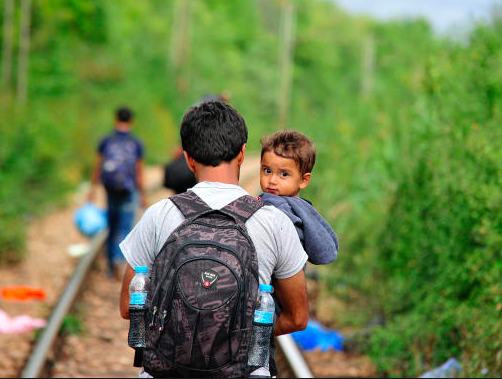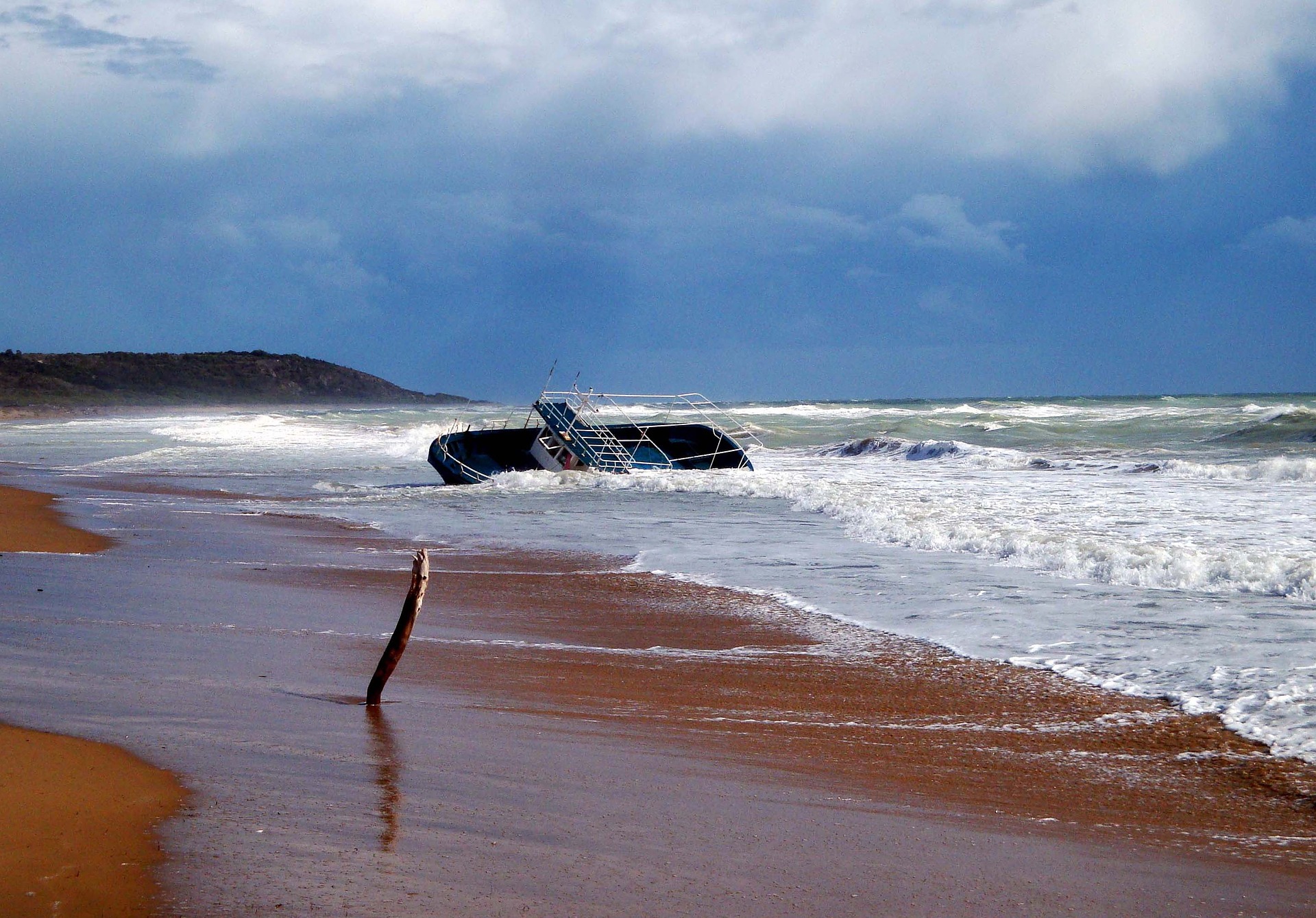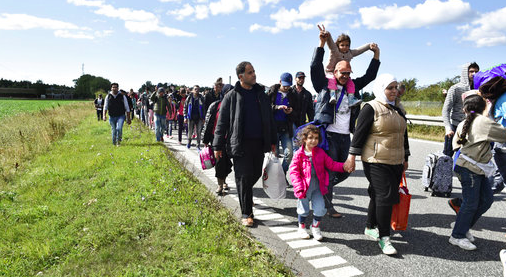En nybliven vän till oss delar här sin historia om vägen till Sverige. Det blir en återblick till vårt föregående tema på bloggen och en påminnelse om situationen för de många asylsökande i vårt land. #respekt #historia #medmänsklighet #rivlagen
”The common thing between the Syrians who make their lives in risk to arrive European countries is escaping from the violence circle that swallow them by the time and seeking for a secure life. Me and my friends took this choice (or you can call it the no choice) in September 2015. This choice meant two things, first we will leave our parents, families and friends till unknown long period and we are unsure if it is possible to meet them in the future. Second we would risk our lives.
We took the road through Lebanon to go out of Syria and then to Turkey.
 Most of the people we met in the road “adult boys and girls and families” on the way to Turkey also had the same target and they came from every part of the country and with different backgrounds (it’s sarcastic how Syrian who are divided by the war are now all united for this goal).
Most of the people we met in the road “adult boys and girls and families” on the way to Turkey also had the same target and they came from every part of the country and with different backgrounds (it’s sarcastic how Syrian who are divided by the war are now all united for this goal).
In the ship that was full of Syrians from Lebanon to Turkey we all were talking and took advice from each other. That gave us little information about what would face us. Turkey was the place where our journey took place out. We chose Azmir city to contact with smugglers. There was a special area where you could live and make contacts with smugglers. It was full of Syrians and Iraqis and other nationalities. We made some calls and made an arrangement with smuggler and bought life jackets. The jackets could be bought from everywhere, the shops were spreaded all over the area in public and we couldn’t be sure if it was original and safe or not.
We started our first try when the smuggler gave us an appointment and place to gather in and we headed after that by taxi and bus and walking to the point “a place in the Turkish land on the shore where you take the boat to the Greek island“. We went in the dark silently to avoid the police and got in the point. Smuggler said the waves were high and we couldn’t lunch and they forced us to stay in the forest to the next day to make another try. Fortunately the sea was calm the day after. But when we rode the boats, they were very small and the engines didn’t work and some people got frightened so we came back to the city after failed long try.
 After the first attempt we took a rest for two days and decided to go to another city and try a different kind of boat bigger and more expensive. We contacted with other smugglers in that city and they put us in a hotel and told from us to stay until the lunching time. But it had been three days and always there was a dilation. In one night we decided to broke our deal up and went out of the hotel we felt unsecure. Fortunately the boat or ship, we may could be on it, was catched by the police and there was a gunfire and the boat drained and some people died there.
After the first attempt we took a rest for two days and decided to go to another city and try a different kind of boat bigger and more expensive. We contacted with other smugglers in that city and they put us in a hotel and told from us to stay until the lunching time. But it had been three days and always there was a dilation. In one night we decided to broke our deal up and went out of the hotel we felt unsecure. Fortunately the boat or ship, we may could be on it, was catched by the police and there was a gunfire and the boat drained and some people died there.
We thanked God and I knew that he guided us in some way.
After those two experiences we took a break and waited another friend from Syria to join us. In that time we understood many things. Smugglers are human traders and always lie about the numbers of travels on the boat and the safety and quality of the boat and the only thing they care about is the money. We had to be ensure that our money is guaranteed until we reach the Greek island.
After that we also had made two failed attempts. The first we lost the point when we were hiding from the police. The second was hard and dangerous. They gathered us and put us in minivan about 43 people in one can and took about two hours to reach the point and it was hard breath when we were inside it but were forced to be silent. When we reached the point we moved quickly to prepare ourselves since the boat had been already set as they said. The sea was in unstable state and the wave were strong in spite of that they refused our demand to cancel or delay the travel. So we rode the boat and within minutes water started to enter the boat and gradually it became full of water thus immediately we almost had the chance to go back to the shore. We and our bags were full of water and bags were heavy. The families with us were very scared and didn’t want us to call the smugglers to brought us back to the city. They said smugglers would force us again to ride the boat. They suggested to walk through the land and find our own way to the city and that what we did and it took about three hours walking to reach a settlement area. In that try there were group of young single women and their children and I were very sad and the situation was painful to see women were going through that. I wanted to ask them what did push you to do that? in my mind. One of the women tried to ease her children by saying “Don’t you like this we were swimming”. I felt very sorry for them. When we arrived the city lately in the night didn’t find any place or hotel to stay in so we stayed in the street until the morning. It was usual to see refugees sleep in or laying in the gardens and squares in the smugglers area, most of them didn’t have enough money to stay in a hotel and the other had failure attempts. After three days we had a deal with others in Bodrum city. It was the last and the successful one. Finally we arrived Kos island finally after two hours in the sea without any trouble. On Kos we met many organization and volunteers working alone or in UN or in the Red Cross organization. Those came to the Greek islands and wanted to help the refugees there. It was the first time we saw people care about us .
After three days in the island we traveled on a big ship to Athens from there the things went fast, we took a bus from Athens to the border with Macedonia. We met there the UN and Red Cross, and step by step we moved between the countries but always the borders on our feet.
 I think they organize the transportation of the refugees from Balkan to Western Europe especially after some refugees deid in a closed van in Austria. We took a train through Macedonia to the Serbian border and the toughest stage was in Serbia. They wanted all the refugees to take a declaration and paper from the authority same as we took in Greece. But there was a huge amount of refugees stucking there and the Serbian police organized nothing and it seems impossible to have one in the UN prepared place and there was no place to stay in. So we decided to escape and took a short way and went secretly without it and also we had to deal with untrusted smugglers again. The smuggler drove us in his car outside the poor south Serbian village which is surrounded by police to the train station and then to Belgrade and from there another smuggler drove us to the Croatian border where things back to normal again then we took the train to the ”non welcoming” Hungary and then another train to Austria where Caritas supervised our way to Germany.
I think they organize the transportation of the refugees from Balkan to Western Europe especially after some refugees deid in a closed van in Austria. We took a train through Macedonia to the Serbian border and the toughest stage was in Serbia. They wanted all the refugees to take a declaration and paper from the authority same as we took in Greece. But there was a huge amount of refugees stucking there and the Serbian police organized nothing and it seems impossible to have one in the UN prepared place and there was no place to stay in. So we decided to escape and took a short way and went secretly without it and also we had to deal with untrusted smugglers again. The smuggler drove us in his car outside the poor south Serbian village which is surrounded by police to the train station and then to Belgrade and from there another smuggler drove us to the Croatian border where things back to normal again then we took the train to the ”non welcoming” Hungary and then another train to Austria where Caritas supervised our way to Germany.
In the end we stayed alive and reached the other side of Europe and every one had his own plans.
I didn’t wrote these details to have a special sympathy. There are thousands of stories for people like us, some had the luck and survived and the other died in the road. I don’t want to be considered numbers in the political and parties speech, we are all human beings and have the same feeling and emotions and I’m sure those who talk about us in numbers they will do exactly the same what we did if they were put in the same situations. Also many countries have a problem of the big numbers of refugees who enter their land and the governments try in every possible way to control the number of the refugees by tightening the conditions of asylum but the most effective way is to stop the war and the conflictions and have peace in the world. Final word big thanks for the European people who open their hearts and help and welcome us./ A
Eftersom författaren ännu inte fått sin asylansökan beviljad så väljer vi att publicera under signaturen A. /Karin och Lotta
Bilderna är hämtade från Unicefs blogg.

Lämna ett svar